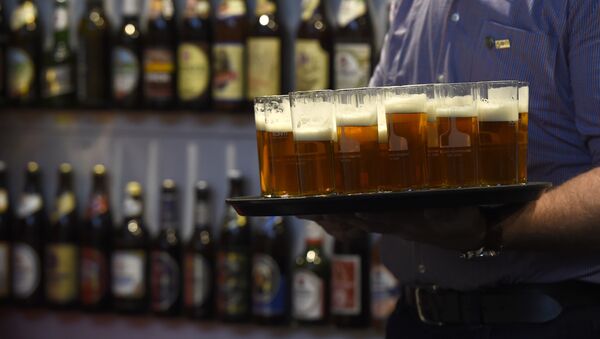Sputnik: Climate change is set to leave those with a taste for beer thirsty in coming decades as it shrinks yields of barley, the top grain used to make the world’s most popular alcoholic drink. How significant is this?
Dabo Guan: Under the future of climate change, the frequent extreme weather events will happen more frequently, for example droughts and extreme heat will hit us every 2-3 years. Under severe drought, the global barley production is going to decrease along with all crops. Our research focuses on the beer and barley is one of the major in making beers and the barley is very sensitive to draught and heat stress. That would result in 17% reduction in barley if a future draught happened to us.
Dabo Guan: Yes, but more importantly the price of beer is going to increase. The price of beer in some small countries like European countries like Ireland and Czech Republic, the price is going to change a lot e.g. in Ireland, the price per bottle of beer (500ml) will shoot up from $2.5 to almost $5. In Poland and Czech Republic, their price is going to shoot up from 70 cents per bottle to $3.5 dollars per bottle. This is going to see a significant decline in consumption for the beer industry.
Sputnik: In response to these changes, could we see future drinks being introduced in the market?
Dabo Guan: That might be possible and I think some of the big beer companies are trying to produce a draught resistant barley but what I’m really advocating here is that when one of the really extreme effects of climate change happen lot of the poorer population they will need to fight for food securities. In western countries we will suffer the least in terms of the impacts of climate change but our life style and quality of life may decline. If we really want to have the option to have a few pints of beers when we watch the football next time we need to mitigate emissions together. Everyone needs to work together to reduce climate change emissions.
The views expressed in this article are those of the speaker, and do not necessarily reflect those of Sputnik.


